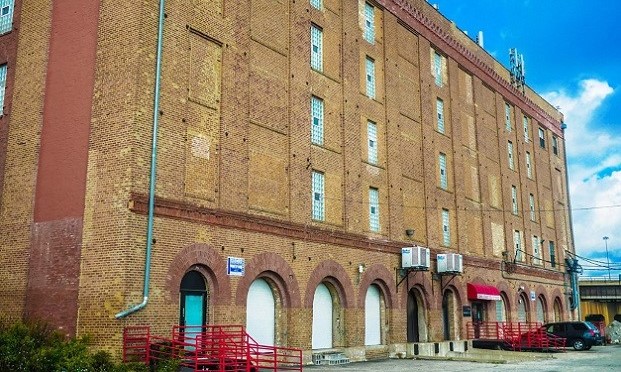
CHICAGO—The self-storage sector is flying high, but it's largely dominated by small business owners who can't use economies of scale to grow their revenue, and that means a lot of opportunities for the bigger players. Locally-owned properties in Chicago, for example, are now attracting national attention.
Marcus & Millichap, for example, recently helped transfer ownership of Canal Street Self Storage, a 66,063-square-foot, 792-unit self-storage facility at 1601 S. Canal St., from a local operator to a national firm. The price paid and name of the new owner were undisclosed, but Cook County property records show that Devon Self-Storage Holdings of Emeryville, CA, paid almost $12.2 million.
“We had multiple offers and closed this transaction at very near the asking price,” Sean Delaney, first vice president investments in Marcus & Millichap's Chicago Oak Brook office, tells GlobeSt.com.
The building was locally owned and operated since 2001, and although it was managed well, it could not reach its true potential, he adds. The new owner, through the use of high-tech management systems and better marketing, especially on the internet, “will be able to take that property and drive up its revenue.”
The Mele Group of Marcus & Millichap, Delaney and Michael Mele, senior managing director investments in the firm's Tampa office, represented the seller, and procured the buyer.
As reported in GlobeSt.com, the sector as a whole has become quite popular with investors. “Self-storage is about as recession resistant an asset class as you will find in commercial real estate,” says Delaney. Furthermore, “from an operational perspective, it's an easy asset class to own.” Unlike the tenants in multifamily or office properties, those in self-storage are low maintenance, aa are the much simpler building systems. And as leases in self-storage tend to be month-to-month, owners “have the ability to increase rental rates much more frequently than any other asset class.”
Devon's new facility overlooks Downtown Chicago and sits within the historic South Loop neighborhood, bordering Chinatown and East Pilsen. It has a wide range of storage options such as eco-friendly storage containers, business documentation storage, climate-controlled units, and uncovered boat/recreational vehicle parking spaces.
The five-story building also has multiple revenue streams brought in by a diverse group of tenants. The basement is dedicated to wine storage, and a retailer that sells wine via the internet occupies a space on the fifth floor. “This isn't your typical storage facility,” says Delaney.

CHICAGO—The self-storage sector is flying high, but it's largely dominated by small business owners who can't use economies of scale to grow their revenue, and that means a lot of opportunities for the bigger players. Locally-owned properties in Chicago, for example, are now attracting national attention.
Marcus & Millichap, for example, recently helped transfer ownership of Canal Street Self Storage, a 66,063-square-foot, 792-unit self-storage facility at 1601 S. Canal St., from a local operator to a national firm. The price paid and name of the new owner were undisclosed, but Cook County property records show that Devon Self-Storage Holdings of Emeryville, CA, paid almost $12.2 million.
“We had multiple offers and closed this transaction at very near the asking price,” Sean Delaney, first vice president investments in Marcus & Millichap's Chicago Oak Brook office, tells GlobeSt.com.
The building was locally owned and operated since 2001, and although it was managed well, it could not reach its true potential, he adds. The new owner, through the use of high-tech management systems and better marketing, especially on the internet, “will be able to take that property and drive up its revenue.”
The Mele Group of Marcus & Millichap, Delaney and Michael Mele, senior managing director investments in the firm's Tampa office, represented the seller, and procured the buyer.
As reported in GlobeSt.com, the sector as a whole has become quite popular with investors. “Self-storage is about as recession resistant an asset class as you will find in commercial real estate,” says Delaney. Furthermore, “from an operational perspective, it's an easy asset class to own.” Unlike the tenants in multifamily or office properties, those in self-storage are low maintenance, aa are the much simpler building systems. And as leases in self-storage tend to be month-to-month, owners “have the ability to increase rental rates much more frequently than any other asset class.”
Devon's new facility overlooks Downtown Chicago and sits within the historic South Loop neighborhood, bordering Chinatown and East Pilsen. It has a wide range of storage options such as eco-friendly storage containers, business documentation storage, climate-controlled units, and uncovered boat/recreational vehicle parking spaces.
The five-story building also has multiple revenue streams brought in by a diverse group of tenants. The basement is dedicated to wine storage, and a retailer that sells wine via the internet occupies a space on the fifth floor. “This isn't your typical storage facility,” says Delaney.
© Touchpoint Markets, All Rights Reserved. Request academic re-use from www.copyright.com. All other uses, submit a request to [email protected]. For more inforrmation visit Asset & Logo Licensing.








